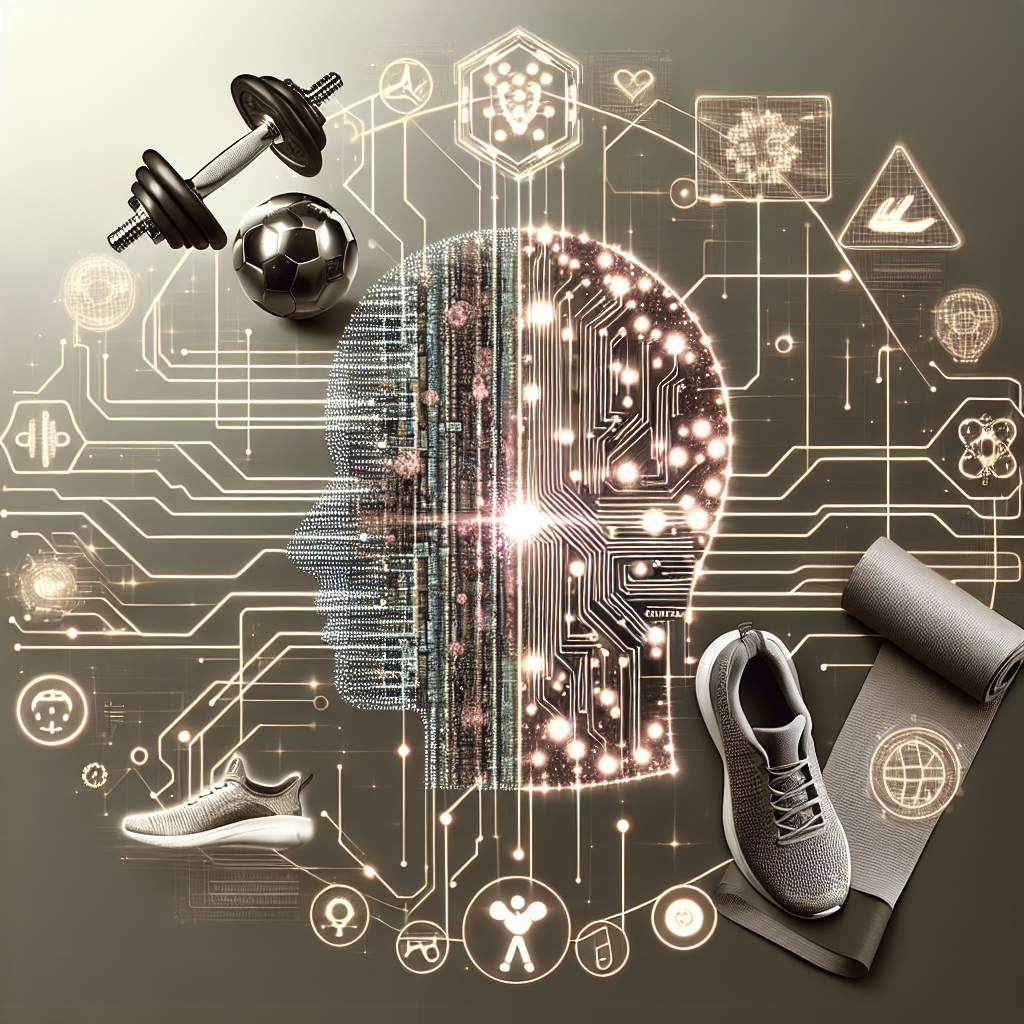In recent years, the use of artificial intelligence (AI) in various industries has become increasingly prevalent. From healthcare to finance, AI has revolutionized the way businesses operate and individuals access services. One area where AI has shown significant potential is in the realm of personalized fitness plans.
Traditionally, creating a personalized fitness plan involved consulting with a personal trainer or fitness expert, who would assess your goals, fitness level, and preferences before designing a plan tailored to your specific needs. However, this process can be time-consuming and costly, making it inaccessible to many individuals. This is where AI software comes in, offering a more efficient and cost-effective solution for creating personalized fitness plans.
AI software leverages algorithms and machine learning to analyze data and provide personalized recommendations based on individual preferences, goals, and fitness levels. By inputting information such as age, weight, height, fitness goals, and dietary preferences, AI software can generate a customized fitness plan that takes into account your unique needs and preferences.
One of the key benefits of leveraging AI software for personalized fitness plans is the ability to access personalized recommendations anytime, anywhere. With the rise of fitness apps and wearable devices, individuals can easily track their progress, receive real-time feedback, and make adjustments to their fitness plan as needed. This level of convenience and accessibility can help individuals stay motivated and on track with their fitness goals.
Another advantage of using AI software for personalized fitness plans is the ability to adapt and evolve over time. As individuals progress in their fitness journey, AI software can analyze data and make adjustments to the fitness plan to ensure continued progress and optimal results. This adaptive approach can help individuals achieve their fitness goals more efficiently and effectively.
Additionally, AI software can provide personalized recommendations for workouts, nutrition, and recovery strategies based on individual preferences and goals. For example, if an individual prefers high-intensity workouts but struggles with recovery, AI software can recommend specific recovery strategies to optimize performance and prevent injury. This level of personalization can help individuals achieve their fitness goals more effectively while minimizing the risk of burnout or injury.
Furthermore, AI software can help individuals track their progress and set achievable goals based on data analysis and insights. By analyzing metrics such as heart rate, calories burned, and workout intensity, AI software can provide personalized recommendations for setting realistic goals and tracking progress over time. This data-driven approach can help individuals stay motivated and accountable while working towards their fitness goals.
In addition to personalized fitness plans, AI software can also offer personalized coaching and support to help individuals stay on track with their fitness goals. By providing real-time feedback, motivation, and accountability, AI software can simulate the experience of working with a personal trainer while offering the convenience and accessibility of a digital platform. This level of support can help individuals stay motivated and engaged with their fitness journey, leading to better outcomes and long-term success.
Overall, leveraging AI software for personalized fitness plans offers a convenient, cost-effective, and efficient solution for individuals looking to achieve their fitness goals. By analyzing data, providing personalized recommendations, and offering support and accountability, AI software can help individuals stay on track and achieve optimal results. Whether you are a beginner looking to get started with a fitness plan or an experienced athlete looking to optimize performance, AI software can help you achieve your fitness goals more effectively and efficiently.
FAQs:
1. How does AI software create personalized fitness plans?
AI software leverages algorithms and machine learning to analyze data such as age, weight, height, fitness goals, and dietary preferences to generate a customized fitness plan tailored to individual needs and preferences.
2. Can AI software adapt and evolve over time?
Yes, AI software can analyze data and make adjustments to the fitness plan as individuals progress in their fitness journey to ensure continued progress and optimal results.
3. How can AI software help individuals track progress and set achievable goals?
By analyzing metrics such as heart rate, calories burned, and workout intensity, AI software can provide personalized recommendations for setting realistic goals and tracking progress over time.
4. Is AI software suitable for individuals of all fitness levels?
Yes, AI software can create personalized fitness plans for individuals of all fitness levels, from beginners to experienced athletes, to help them achieve their fitness goals more effectively and efficiently.

